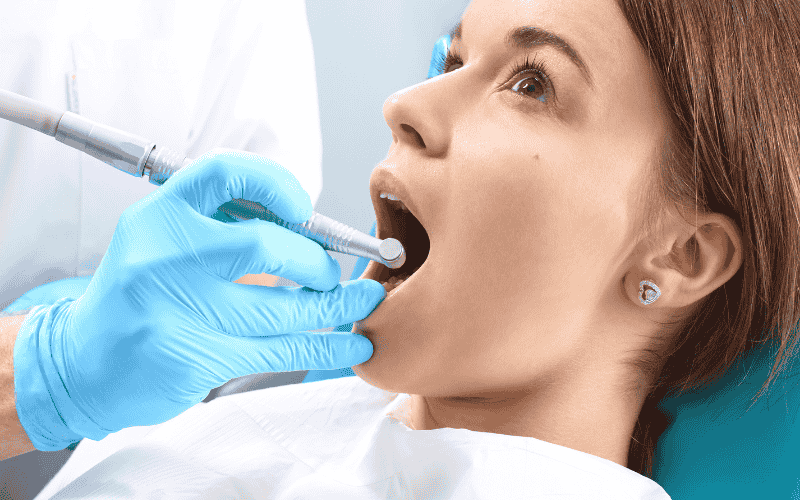
A root canal is a dental procedure to save a tooth with infected or damaged pulp. The recovery phase is vital for the success of this treatment. Proper care can reduce discomfort and prevent complications.
This blog will cover essential recovery tips, immediate post-procedure care, pain management strategies, and long-term oral health practices. Following these guidelines can help you achieve a smooth and speedy healing process after your root canal.
Understanding the Root Canal Procedure
During a root canal, a dentist removes the infected pulp from inside a tooth. They clean and disinfect the space before sealing it. This procedure helps alleviate pain and saves the tooth from extraction.
People typically need a root canal due to severe decay, cracks, or repeated dental procedures. Symptoms often include severe toothache, prolonged sensitivity to heat or cold, and swelling.
After the procedure, patients can expect relief from the pain that led them to seek treatment. Most experience mild discomfort, which usually subsides within a few days. With proper care, the tooth can function normally for many years.
Immediate Post-Procedure Care
What to Expect: After your root canal, you may feel numbness from anesthesia. Some people experience mild swelling or tenderness around the treated area. Discomfort usually peaks within the first few days.
Pain Management: Over-the-counter pain relievers like ibuprofen or acetaminophen can help manage discomfort. If your dentist prescribes medication, take it as directed. Avoid aspirin, as it can increase bleeding.
Dietary Recommendations: For the first few days, stick to soft foods. Yogurt, applesauce, and mashed potatoes are good choices. Avoid hard, crunchy, or sticky foods that could irritate the tooth. Stay away from hot beverages and spicy foods until the numbness wears off.
Tips for a Smooth Recovery
Rest and Recovery:
After a root canal, it is essential to prioritize rest. Your body needs time to heal from the procedure, and adequate rest can significantly aid the recovery process. Plan to take it easy for the first few days. Consider taking a few days off work if possible.
Avoid any activities that require intense focus or physical exertion. Listening to your body is crucial; if you feel fatigued or in pain, permit yourself to rest. Sleep helps your body repair itself, so aim for plenty of restful nights in the days following the procedure.
Oral Hygiene Practices:
Maintaining oral hygiene is vital, but it is important to be gentle during your recovery. Use a soft-bristled toothbrush to avoid irritating the treated area. Brush your teeth carefully, avoiding the immediate site of the root canal for the first few days. You can gently rinse your mouth with warm salt water to help reduce swelling and keep the area clean
Avoid using mouthwash containing alcohol, as it can irritate the gums. Continue to floss daily but be cautious around the treated tooth. Good hygiene practices will promote healing and prevent complications.
Avoiding Strenuous Activities:
During the initial recovery period, it is best to avoid strenuous physical activities. Activities like heavy lifting, running, or intense workouts can elevate blood pressure and increase discomfort.
Aim for light activities, such as walking, to keep your body moving without overexerting yourself. If you participate in sports, wait until your dentist gives you the green light before returning to your regular routine.
By keeping your activity levels low, you can help ensure a smoother recovery and reduce the risk of complications.
Managing Pain and Discomfort
Recognizing Normal vs. Abnormal Pain: Some discomfort is normal after a root canal. However, severe pain that does not improve may indicate a problem. Contact your dentist if you experience persistent pain or swelling.
Home Remedies: Use cold compresses on your cheek to reduce swelling and numb pain. Saltwater rinses can help keep the area clean and promote healing. These remedies can provide additional relief during recovery.
When to Seek Professional Help: Watch for signs of infection, such as fever, severe swelling, or drainage from the treated area. If you notice any of these symptoms, contact your dentist immediately.
Follow-Up Care
Attending follow-up appointments is essential for monitoring your recovery. During these visits, your dentist will check the healing process and assess if further treatment is needed.
After the root canal, you may require a crown to protect the tooth. Your dentist will discuss this option during follow-up visits. Regular check-ups help ensure your tooth remains healthy and functions properly.
Long-Term Oral Health After a Root Canal
Maintaining good oral hygiene is critical to preventing future issues. Brush and floss daily to keep your mouth healthy, and use fluoride toothpaste for added protection.
Regular dental check-ups every six months are essential for monitoring oral health. Your dentist can catch potential problems early. Additionally, a balanced diet rich in vitamins and minerals supports long-term dental health.
In summary, a smooth recovery after a root canal involves proper care and attention. For optimal healing, follow the guidelines outlined in this blog. Always consult your dentist if you have concerns or experience unusual symptoms. These steps will help ensure a successful recovery and maintain oral health.
